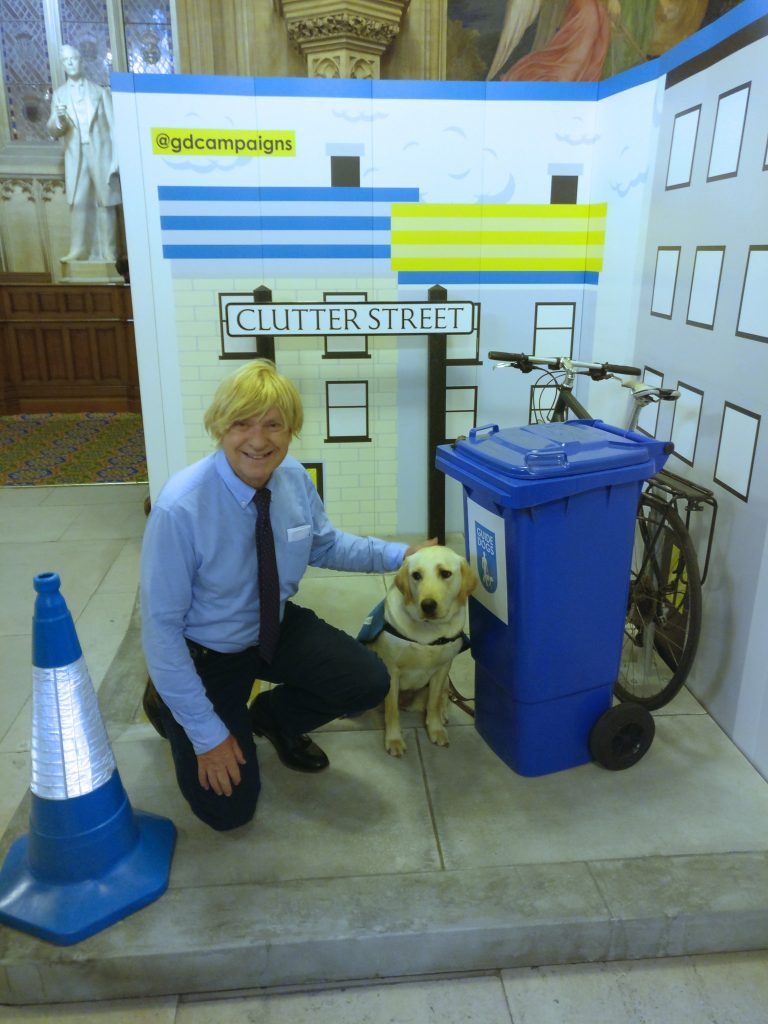Michael dodges street clutter in Parliament
Michael Fabricant MP visited a street scene in Parliament last week set up by the charity Guide Dogs to learn more about the challenges that people with sight loss face when walking the streets.
“Sometimes cars do have to park on the pavement and people have to leave out bins, but there does need to be some common-sense”
At the event, Michael dodged a pavement parked car, stumbled across a variety of street clutter, and visited a “shared space” area lacking safety features such as kerbs and pedestrian crossings. He heard from guide dog owners that dealing with these obstacles can leave both them and their guide dogs scared and reluctant to go out.
“Sometimes cars do have to park on the pavement and people have to leave out bins, but there does need to be some common-sense about this and awareness of how this can provide an obstacle course for partially sighted and blind people” says Michael Fabricant. “Street clutter should be avoided if at all possible.”
According to a Guide Dogs survey, 97% of blind and partially sighted people have encountered obstacles on the pavement. The most common obstacles were cars parked on the pavement: 9 out of 10 have had problems with pavement parking. Pavement parked cars force pedestrians into the road to face oncoming traffic. This is particularly dangerous for people with vision impairments, parents with pushchairs, wheelchair users and other disabled people.
In separate research by YouGov for Guide Dogs, two out of three drivers (65%) admitted having parked on the pavement and nearly half (46%) were confused by the law on pavement parking.
Guide Dogs is campaigning for a law to make pavement parking an offence, except on streets where local authorities agree that it is safe for pedestrians. This is already the case in London, but elsewhere across the country, councils struggle to tackle unsafe pavement parking.
James White, Senior Campaigns Manager at Guide Dogs, commented: “Too often, our streets can be cluttered with dangerous obstacles for blind and partially sighted people.
“The worst offenders are cars parked on the pavement. If you have a vision impairment, pavement parked cars aren’t just a nuisance, they can force you to step out into the road and put you in real danger.
“Outside London, the law on pavement parking is unclear and difficult to enforce. We want pavement parking to be the exception so pedestrians can rely on their path being clear. When drivers themselves don’t know the rules, that is a strong sign the law needs to change.
“Back in 2015, the Government committed to look into every option to tackle this serious problem. We hope that they will now follow up with a new law on pavement parking.”
